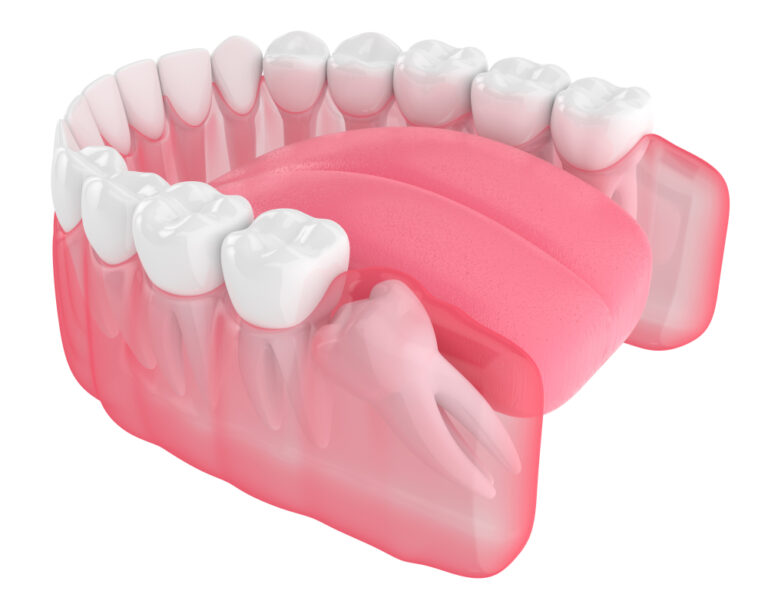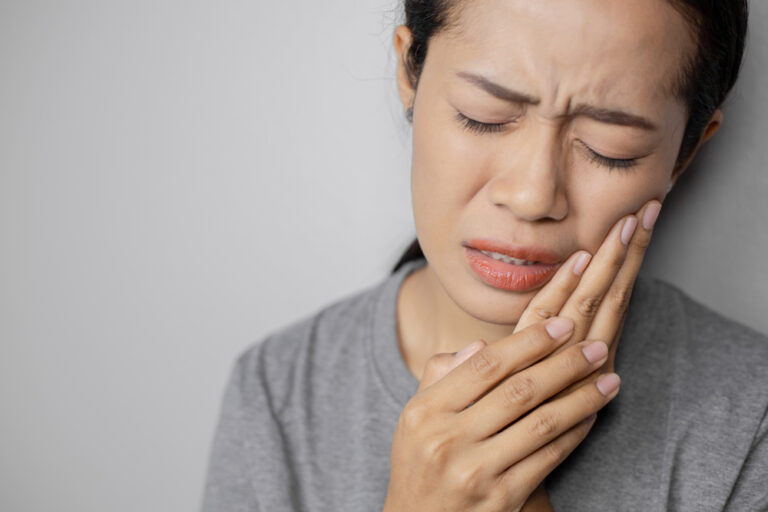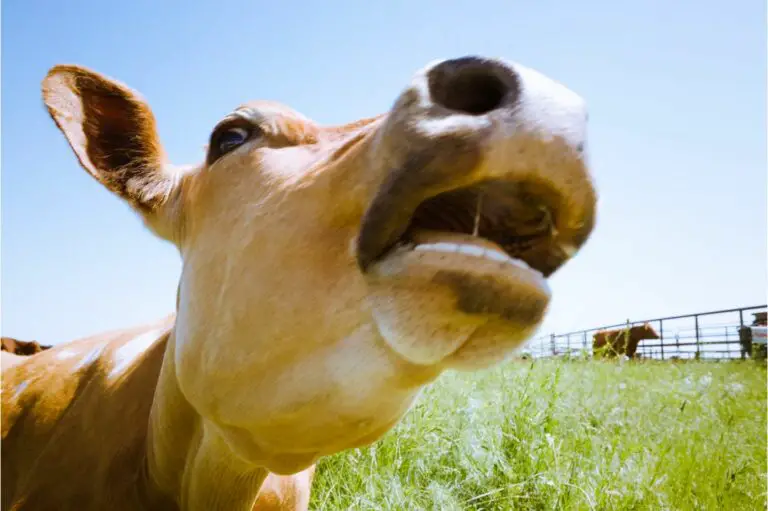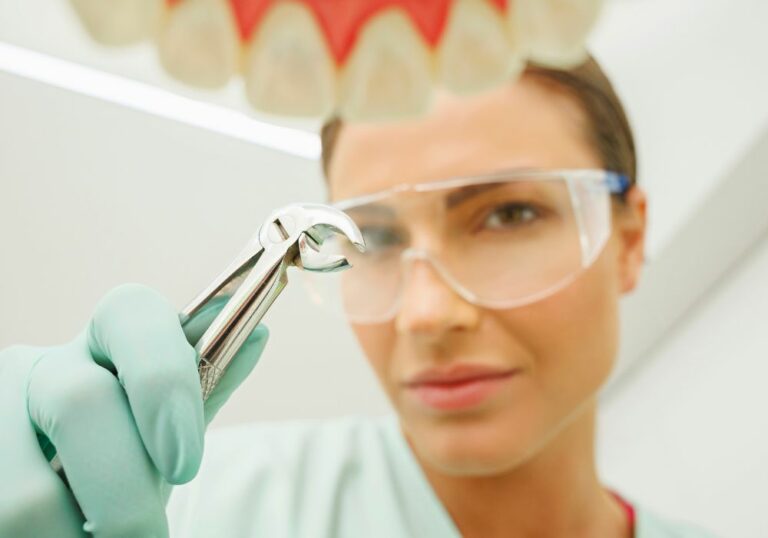Every dog owner wants their pooch to be in the best possible health, and part of ensuring your doggy stays that way is looking after its teeth.
However, not all dogs are so keen on the procedure, so to help you find alternatives, in this post, we explain how to clean dog teeth without brushing.
If you want a few tips about how to brush dogs’ teeth, you can also check out this video before reading on it.
How to Clean Dog Teeth Without Brushing
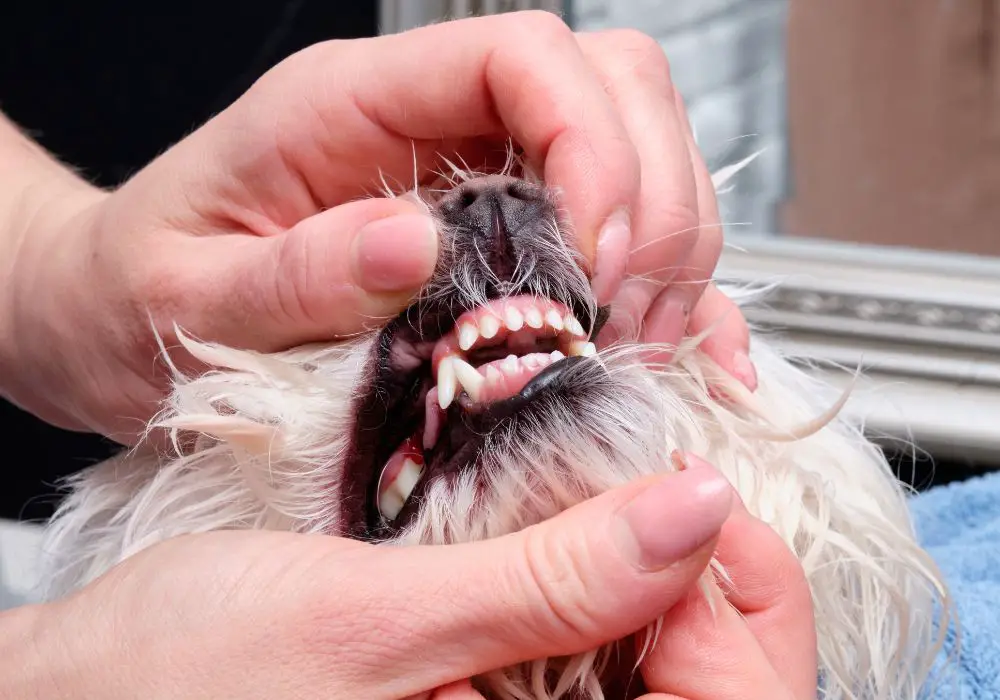
-
Dog chews
Dog chews are special products that are designed specifically for dogs to chew – hence the name.
It is important to give them to dogs for several reasons. For example, it helps alleviate boredom, it helps keep their mouths and jaws healthy and it also helps prevent them from chewing things they shouldn’t be chewing – like your furniture.
However, dog chews can also help keep their teeth clean by scraping off the layer of plaque that builds up on their teeth.
They come in a range of flavors – and many types exist, so you’re sure to be able to find one that’s suitable for your pooch.
For these reasons, dog chews are among the best choices for maintaining healthy teeth in dogs and are a great supplement, even if you brush your dog’s teeth regularly.
-
Bones
Another option that’s similar to dog chews is bones, a healthy and natural alternative.
Dogs love chewing bones, as just about every dog lover knows, and not only do bones keep them busy, but they also help keep doggy teeth clean through the same scraping action as dog chews.
When choosing bones to give to your dog, it’s best to opt for raw ones since cooked bones can splinter, posing a choking risk.
You can sometimes buy raw bones from pet stores, but a good tip is to enquire with your local butcher.
They’ll probably sell you raw bones for much cheaper since they were just going to throw them out anyway – and if you’re lucky, they might even let you have them for free.
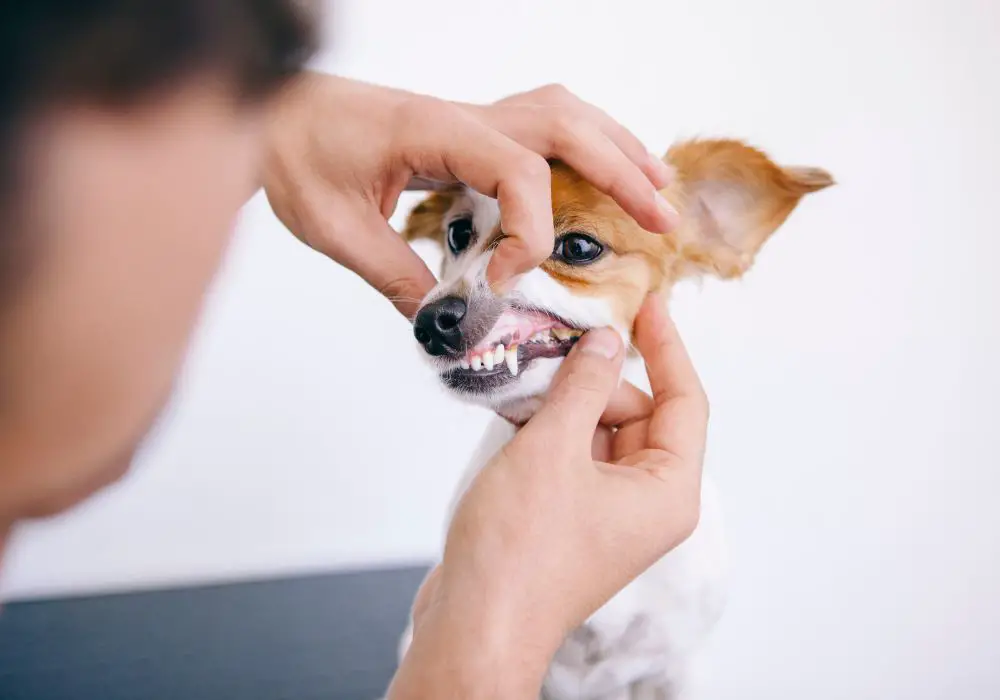
-
Chew toys
The concept of chew toys is similar to dog chews – except they’re only meant to be chewed and not eaten.
The chewing action helps remove plaque from dogs’ teeth while also helping to relieve boredom – and if they’re chewing a toy, they’re less likely to turn their attention to something like your couch.
The downside of this method is that chewing toys won’t do much for your dog’s breath – but at least it will help prevent dental problems like plaque and gum disease from developing.
-
Dental treats
Better than just standard dog chews are dental treats. These are similar to dog chews in that they’re treats that are designed for dogs to chew – but at the same time, they contain ingredients that help freshen a dog’s breath.
This means that the chewing action helps remove plaque and reduce teeth-related problems, and the chews also help to get rid of that bad doggy breath at the same time.
Furthermore, your dog is likely to love them, so far from dental health being a chore for you and something your dog does everything to avoid, it will be something your dog actively enjoys, making looking after your dog’s teeth far less of a headache.
-
Dental wipes
Dental wipes might not be the best long-term solution to dog dental hygiene, but they’re one option you can try while you try to persuade your four-legged friend to accept brushing with a toothbrush.
With wipes, you simply take one and use your fingers to physically wipe your dog’s teeth, which can help remove some of the plaque and kill bacteria in your dog’s mouth.
There are a few downsides, however.
Wipes don’t have the same plaque removal capability of proper brushing – or even of something like chewing a bone or a chew.
Some people might find it a bit unpleasant to have to put their hand into a dog’s mouth to clean it – and if it isn’t a dog you completely trust, you might also be concerned about the possibility of being bitten.
Furthermore, dog wipes can be expensive – you have to use one wipe per cleaning, and this soon adds up. This is one of the main reasons why many people prefer to use this as a short-term fix when necessary, rather than as a long-term solution to doggy dental hygiene.
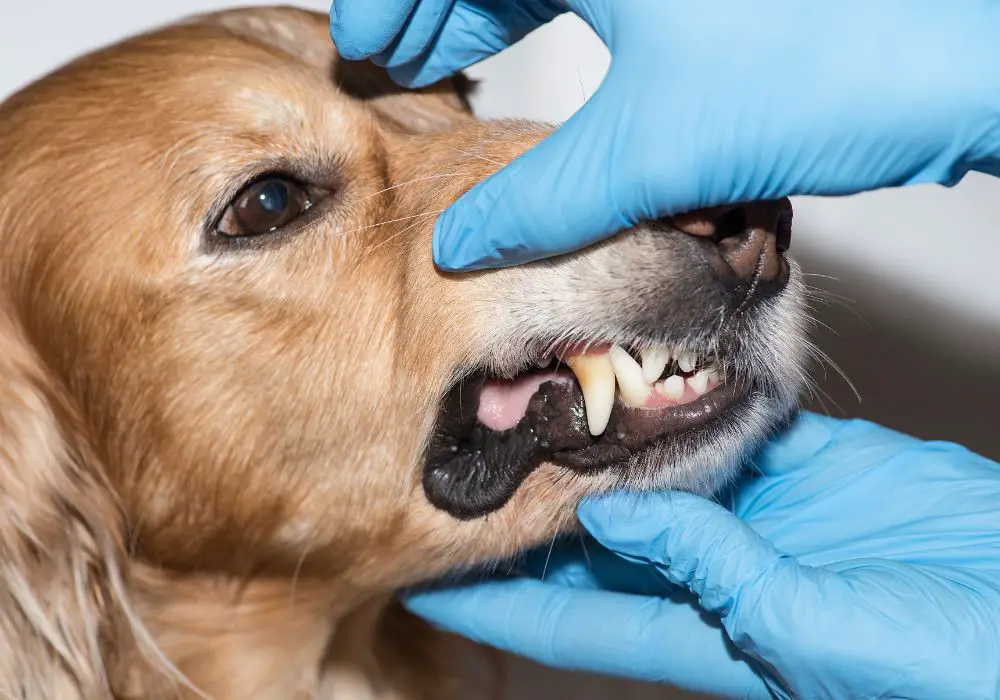
-
Cloth and toothpaste
Another option that is similar to the dental wipe method but that is a bit cheaper is to use a cloth and toothpaste to clean your dog’s mouth instead of a brush.
The advantage here is that this is much less expensive than using wipes since you can reuse a piece of cloth.
However, like with wipes, it won’t do such a great job of removing plaque, and you’ll still have to put your hand in your dog’s mouth to do it.
And then your dog might not even like this any more than having its teeth cleaned with a brush, in which case using this technique won’t really help you.
-
Gels or sprays
Another product you might like to try for cleaning your dog’s teeth is dental gel or spray.
With gel, you simply apply the gel to the dog’s teeth with your fingers – while with sprays, you just spray it on, meaning you don’t need to put your hand in the dog’s mouth.
Once the gel or spray is on, it will then get to work, helping to reduce plaque and killing bacteria in the dog’s mouth.
On the downside, the plaque removal capability of gels and sprays is limited when compared to more vigorous methods like brushing or chewing – but it can still play a role in your dog’s overall dental care regime.
-
Fruit and veg
Non-dog people might be surprised to hear that dogs are also partial to a bit of fruit and veg – but most dog owners will confirm that their pooch will happily munch down anything they can get their teeth on, including meat, veg and plenty of other stuff that isn’t even food.
The surprising benefit of giving dogs foods like carrots to chew is that it does wonders for their stinky dog breath.
This is not in itself a complete dental care solution – but it can be part of your overall strategy for looking after your dog’s teeth.
At the same time, don’t overdo it – because dogs don’t have digestive systems that have evolved to process vegetables, and feeding them too much of this kind of food can make them sick.
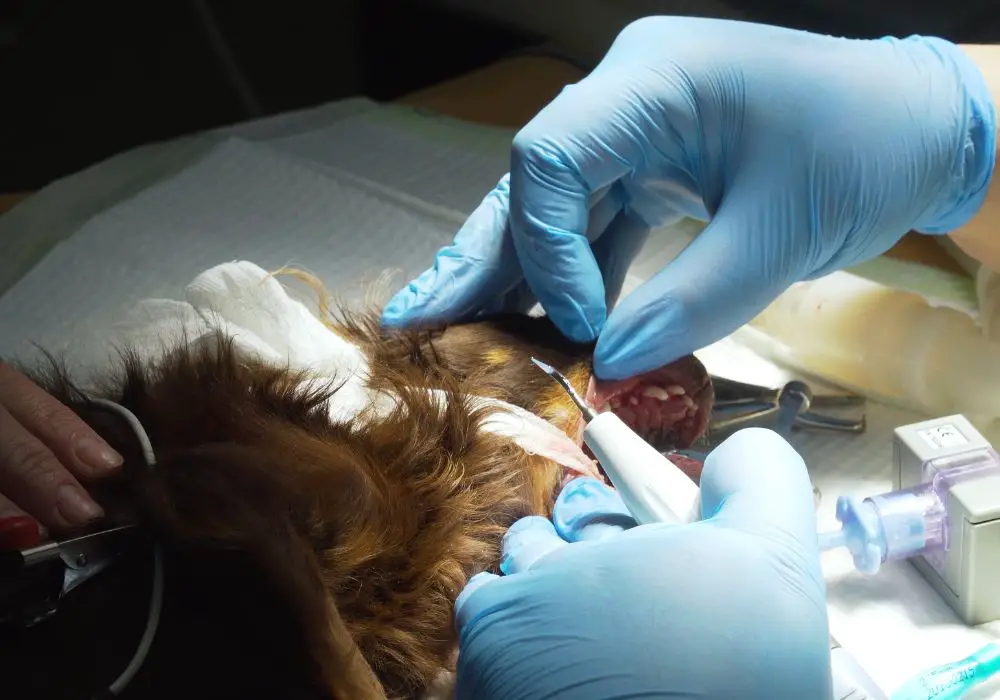
-
Food supplements
Something worth considering is food supplements that can be added to your doggy’s regular food.
Such treatments help soften and remove plaque while also freshening up your pet’s breath.
However, as with some other options, this should be seen as one part of your overall strategy rather than complete dental care for dogs in itself.
-
Water additives
A similar concept to food supplements is water additives, with the only difference being that you add it to your dog’s water instead of the food.
However, although it can help with plaque and bad breath, it can’t replace other methods of dental care completely.
-
Coconut oil
Finally, some people claim that adding a little coconut oil to dog food – or even using it as a kind of toothpaste – can help keep doggy teeth clean.
We’re not so sure about this one, but it can’t do any harm – so it’s got to be worth a go.
If you find this idea intriguing, here’s a video telling you more about using coconut oil to clean dogs’ teeth.
How to keep your dog’s teeth in the best condition
Although many of these techniques can help you keep your dog’s teeth in the best possible condition, there’s no replacement for proper dental care – and for dogs, it’s very similar to humans.
That means regular brushing is essential to remove plaque and prevent a build-up of tartar. And visiting a vet for regular dental check-ups and deep cleaning will help prevent any potential problems from developing.
FAQs
1. Do you need to brush dogs’ teeth?
Yes. If you want your dog to have healthy teeth and fresh breath, brushing and proper dental care are essential.
You might argue that wolves in the wild don’t have dental care and they do ok – but not all wolves end up living long lives, and many probably also suffer from painful bad teeth, which is not something you want for a domestic pet.
2. Why don’t dogs like having their teeth brushed?
Dogs might simply not like the sensation of having a foreign object forced into their mouths, and the feeling of brushing and the taste of the toothpaste might be unpleasant for them too.
However, with a little determination and perseverance, most dogs can be persuaded to accept a toothbrush in the end.
Don’t neglect dental care for your dog
If your dog refuses to have its teeth brushed, there are many alternatives you can try – but above all, the most important thing is that you find something that works rather than just neglecting dental care for your four-legged friend.

